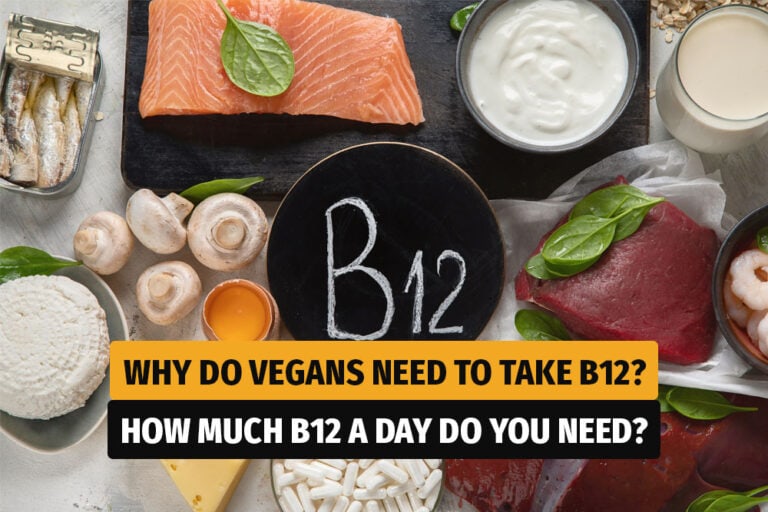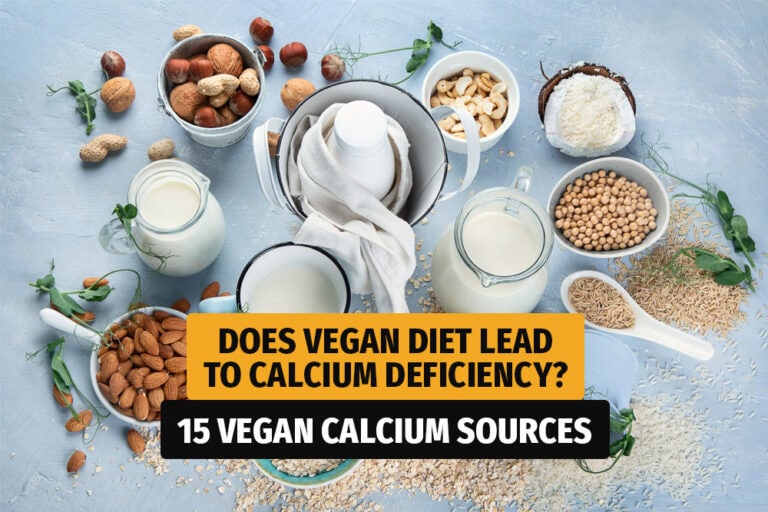
Table of Contents
Iron matters for everyone, but it’s honestly a little trickier if you’re vegan. If you’ve swapped animal products for plants, you might wonder if you’re actually getting enough of this key nutrient.
Don’t stress! You can get all the iron you need from a well-planned vegan diet because there are lots of plant foods containing reliable sources of iron.
Plant-based iron (non-heme iron, if you wanna get science-y) hangs out in some pretty tasty foods. Dried beans, lentils, tofu, tempeh, and dark leafy greens like spinach are iron superstars on your plate.
Other good sources? Whole grains, dried fruits, nuts, seeds, and fortified cereals. It’s kind of like a treasure hunt, but instead of gold, you’re finding something your body actually needs.
Your body absorbs plant iron a bit differently than animal iron. To help your body soak up more iron, try eating vitamin C-rich foods (like citrus fruits or bell peppers) alongside your iron-packed meals.
It’s like giving your iron a little boost—a buddy system for nutrients! Skipping tea or coffee with meals can help too, since those drinks can make it harder for your body to grab that iron.
Top Vegan Sources of Iron (No Cows Needed!)
Getting enough iron on a plant-based diet isn’t as hard as it sounds. These powerhouse foods will keep your iron levels happy while keeping cows out of the equation.
Beans, beans, the magical fruit! Your iron levels will get a serious boost from these plant-powered wonders.
Lentils are the real MVPs here, packing about 3.3 mg of iron per cooked cup. They’re basically like tiny iron pills that actually taste good.
Chickpeas aren’t just for hummus anymore! With 4.7 mg of iron per cup, they deserve a regular spot on your plate.
Toss them roasted on salads or blend them into creamy dips. Black beans and soybeans are your iron-rich besties too.
Soybeans particularly shine with a whopping 4.5 mg per half-cup serving. Their cooler cousin tempeh brings about 4.5 mg per serving, with the bonus of being fermented for easier digestion.
Pair these legumes with vitamin C foods like bell peppers or tomatoes to boost iron absorption by up to 3-6 times!
Popeye was onto something with spinach. One cooked cup delivers around 6.4 mg of iron.
Not too shabby for something that shrinks to almost nothing when cooked. Kale and Swiss chard aren’t just trendy—they’re iron powerhouses too.
A cup of cooked kale offers about 1.2 mg of iron. These greens make excellent salads, smoothie additions, or sautéed sides.
Broccoli brings about 1 mg of iron per cooked cup, plus loads of vitamin C to help your body absorb that iron better.
Bok choy deserves a shoutout with its mild flavor and impressive iron content. It’s perfect for stir-fries if you’re tired of spinach (hey, it happens).
Quick Iron Boost:
- Spinach: 6.4 mg per cooked cup
- Kale: 1.2 mg per cooked cup
- Broccoli: 1 mg per cooked cup
Pumpkin seeds (pepitas) are tiny iron treasures with about 2.5 mg per quarter cup. Sprinkle these crunchy guys on everything from oatmeal to salads.
Sesame seeds aren’t just for bagels! These little powerhouses contain about 1.3 mg of iron per tablespoon.
Tahini (sesame seed butter) makes a delicious iron-rich spread or sauce base. Flaxseeds bring a double benefit of iron and omega-3s.
Grind them up to maximize absorption. Cashews and almonds make perfect iron-rich snacks with about 2 mg per quarter cup.
They’re delicious raw, roasted, or blended into creamy nut butters. Quinoa isn’t technically a seed, but it acts like one and delivers about 2.8 mg of iron per cooked cup.
It’s also one of the few plant foods with complete protein!
Fortified cereals can deliver a serious iron punch—some pack up to 18 mg per serving! Check labels and look for options with at least 45% of your daily iron needs.
Plant milks often come fortified with iron too. Soy, almond, and oat varieties typically offer 1-1.5 mg per cup.
Your morning cereal just became an iron powerhouse! Dried fruits like apricots and raisins concentrate their iron content when the water is removed.
A half-cup of dried apricots provides about 3.5 mg of iron. Prune juice offers about 3 mg per cup and helps keep things moving (if you know what I mean).
Dark chocolate contains around 3.4 mg of iron per 100g serving. Yes, you read that right—chocolate for iron!
Aim for 70% cocoa or higher for maximum benefits. Finally, a health reason to eat chocolate that’s actually legit!

How Vegans Can Absorb More Iron (Without Magic)
Getting enough iron on a vegan diet isn’t just about eating iron-rich foods. Your absorption superpowers need a little strategy to work their best.
Want to transform from iron-deficient to iron-efficient? Pair your iron-rich foods with vitamin C sidekicks!
This dynamic duo can boost iron absorption by up to 3-4 times. Try these power combos:
- Lentil soup with fresh lemon juice squeezed on top
- Tofu stir-fry with bell peppers
- Spinach salad with strawberries
- Bean burritos with fresh tomato salsa
- Hummus with red pepper strips
Just 4 ounces (half a cup) of orange juice can seriously increase how much iron your body absorbs from your meal. Other vitamin C champions include kiwi, broccoli, and Brussels sprouts.
Your morning smoothie can be an iron absorption powerhouse—blend spinach with vitamin C-rich fruits like oranges or mangoes!
Not all nutrients play nicely together. Some actually block iron from being absorbed properly—like party crashers at your nutrient absorption bash.
Iron Blockers to Watch:
- Calcium supplements (take them 2 hours away from iron-rich meals)
- Coffee and tea (the tannins bind to iron)
- Phytates in whole grains (soak or sprout grains to reduce these)
Cooking in cast iron pans adds a surprising boost to your food’s iron content. The acidic foods (like tomato sauce) pick up iron from the pan!
Don’t take your iron supplements with milk alternatives containing calcium. Space them at least 2 hours apart to avoid this absorption roadblock.
Tired all the time? Brain fog? Pale skin? These might be your body’s SOS signals for more iron.
Don’t just guess—get tested!
A simple blood test can measure:
- Hemoglobin levels
- Ferritin (your iron storage)
- Transferrin saturation
Women usually need around 18mg of iron every day. Men get by with about 8mg.
If you’re an athlete or your periods are heavy, you probably need even more.
Warning signs of low iron:
- Unusual fatigue
- Shortness of breath during normal activities
- Headaches
- Brittle nails
- Cold hands and feet
If you need supplements, try iron bisglycinate. It’s easier on your stomach than most and your body absorbs it better, at least in my experience.
Take it on an empty stomach with vitamin C if you want to get the most out of it. That’s what seems to work best for most folks.




